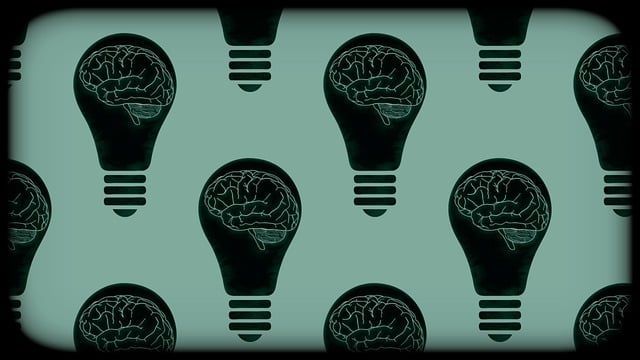Broomfield EMDR Therapy is a proven, innovative approach combining Eye Movement Desensitization and Reprocessing (EMDR) techniques with stress management for trauma healing. Effective crisis intervention training integrates this method into comprehensive programs, improving mental wellness by enhancing emotional resilience through simulations and personalized support. By incorporating Broomfield EMDR Therapy and Mental Wellness Coaching, these programs revolutionize global crisis response, reducing stigma and promoting healthier coping strategies for trauma survivors.
Crisis intervention teams play a vital role in managing and mitigating high-risk situations, offering immediate support and guidance. This article explores the importance of specialized training programs, highlighting Broomfield EMDR Therapy as a revolutionary approach. We’ll delve into key components, benefits, and real-world applications, showcasing how these programs enhance crisis response effectiveness. By understanding the role of crisis intervention teams and leveraging innovative training methods like Broomfield EMDR, we can improve community safety and well-being.
- Understanding Crisis Intervention Teams: Their Role and Importance
- Broomfield EMDR Therapy: A Revolutionary Approach to Training
- Key Components of Effective Crisis Intervention Team Training
- The Benefits and Impact of Specialized Programs
- Real-World Applications: Success Stories from Crisis Response Teams
Understanding Crisis Intervention Teams: Their Role and Importance

Broomfield EMDR Therapy: A Revolutionary Approach to Training

Broomfield EMDR Therapy stands as a revolutionary approach within crisis intervention team training programs. This innovative method combines the powerful principles of Eye Movement Desensitization and Reprocessing (EMDR) with practical, hands-on training in stress management and conflict resolution techniques. By integrating Mind Over Matter principles, participants learn to respond effectively during crises, helping individuals process traumatic experiences and regain control.
Through dynamic simulations and interactive workshops, Broomfield EMDR Therapy equips crisis intervention teams with the skills needed to navigate complex situations. This holistic approach not only enhances emotional resilience but also fosters a culture of compassionate and efficient crisis management within the team. By embracing these cutting-edge techniques, organizations can ensure their personnel are well-prepared to handle challenging scenarios, ultimately improving outcomes for those in need.
Key Components of Effective Crisis Intervention Team Training

Effective crisis intervention team (CIT) training programs are multifaceted and comprehensive, equipping healthcare professionals with the skills to navigate challenging situations. Key components include not only crisis management techniques but also a deep understanding of trauma-informed care, which is crucial for providing sensitive and effective support. Training should cover various scenarios, from acute crises to long-term burnout prevention strategies for healthcare providers, ensuring teams are prepared for diverse needs.
The integration of evidence-based practices, such as Broomfield EMDR Therapy, enhances the program’s effectiveness. These methods foster mental wellness podcast series production, enabling team members to process and manage distressing emotions healthily. Regular simulations and debriefings allow participants to apply learned skills in realistic settings, promoting a culture of resilience within the CIT.
The Benefits and Impact of Specialized Programs

Specialized crisis intervention team training programs, such as Broomfield EMDR Therapy, offer a multitude of benefits that traditional general training cannot match. By focusing intensively on techniques like Eye Movement Desensitization and Reprocessing (EMDR), these programs equip team members with advanced coping skills development, enabling them to address complex trauma and mental health challenges more effectively. This specialized knowledge is crucial for navigating the intricate emotional landscapes often encountered in crisis situations.
Furthermore, these intensive programs foster a sense of community among team members, enhancing collaboration and communication through shared learning experiences. Effective crisis intervention requires a strong support network, and well-trained teams can better implement community outreach program initiatives that promote mental wellness. Ultimately, investing in specialized training translates into improved outcomes for individuals facing crises, fostering safer and more supportive environments within communities.
Real-World Applications: Success Stories from Crisis Response Teams

In the realm of crisis intervention, real-world applications of team training programs have proven to be game-changers. Success stories from crisis response teams across various communities highlight the profound impact of well-structured initiatives. For instance, Broomfield EMDR Therapy has seen remarkable results in fostering resilience and effective coping strategies among individuals facing traumatic events. By integrating Mental Wellness Coaching Programs Development, these teams have enhanced their ability to provide tailored support, ensuring that each individual receives the care they need.
The power of collaborative efforts is evident in numerous cases where Mental Wellness Podcast Series Production has played a pivotal role in spreading awareness and education. These podcasts facilitate open discussions on mental health, breaking down barriers and promoting understanding. Moreover, they serve as a platform for sharing success stories, inspiring confidence boosting initiatives, and encouraging individuals to seek help without stigma. Such innovative approaches not only revolutionize crisis response but also contribute to the broader goal of prioritizing Mental Wellness Coaching Programs Development in communities worldwide.
Crisis intervention team training is an invaluable investment for organizations aiming to enhance their ability to handle critical situations. As highlighted in this article, programs like Broomfield EMDR Therapy offer a comprehensive and revolutionary approach to equipping teams with the necessary skills. By focusing on key components such as empathy, active listening, and specialized de-escalation techniques, these training initiatives have proven to significantly improve crisis response outcomes. Real-world success stories further emphasize the importance of investing in well-rounded, specialized programs that empower individuals to make a tangible difference during challenging times.














